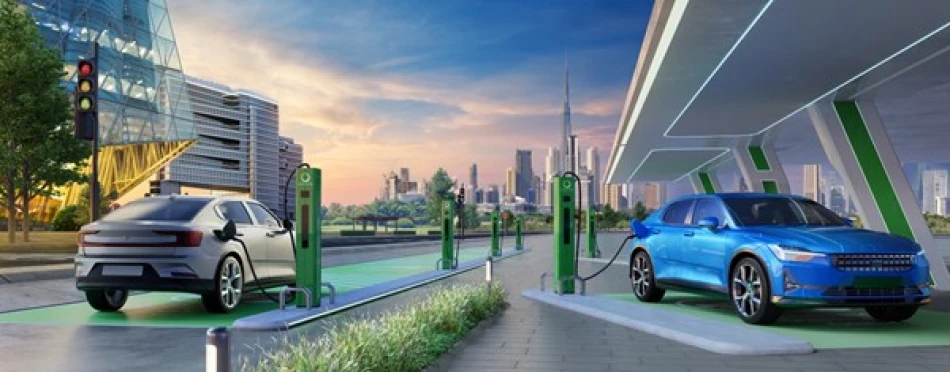
Dubai Expands Electric Vehicle Charging Network with 1,270 Public Stations
Dubai's Electric Vehicle Revolution: 1,270 Charging Points Signal Middle East's Green Transport Leadership
Dubai has established itself as the Middle East's electric vehicle infrastructure pioneer, deploying over 1,270 charging stations across the emirate through a strategic blend of public investment and private partnerships. This aggressive expansion positions Dubai ahead of regional competitors and demonstrates how oil-rich nations are pivoting toward sustainable transport to diversify their economies and meet global climate commitments.
Ambitious National Targets Drive Infrastructure Boom
Saeed Mohammed Al Tayer, CEO of Dubai Electricity and Water Authority (DEWA), revealed that the charging network supports the UAE's bold national strategy to achieve 50% electric and hybrid vehicle adoption by 2050. With over 40,600 electric vehicles already registered in Dubai by mid-2024, the emirate is experiencing rapid EV uptake that demands robust charging infrastructure.
This target represents one of the most aggressive EV adoption goals in the Gulf region, surpassing many European nations' timelines and positioning the UAE alongside countries like Norway and the Netherlands in terms of ambition, if not current penetration rates.
First-Mover Advantage in Regional Market
Dubai launched its "Green Charger" initiative in 2014 as the region's first public EV charging infrastructure, giving it a decade-long head start over neighboring countries. This early investment mirrors strategies employed by Singapore and South Korea, where governments recognized that charging infrastructure must precede mass EV adoption rather than follow it.
The comprehensive licensing framework now allows independent charging operators to enter the market, creating a competitive ecosystem that should drive down costs and improve service quality—a model successfully implemented in markets like California and the UK.
Strategic Public-Private Partnership Model
DEWA's approach combines direct government investment with licensed private operators, avoiding the infrastructure bottlenecks that have plagued EV adoption in other markets. The authority recently signed agreements with companies like Parkn to install charging stations in high-traffic locations, ensuring strategic placement that maximizes utilization rates.
This hybrid model addresses a critical challenge faced by purely private-sector approaches: the chicken-and-egg problem where consumers won't buy EVs without charging infrastructure, but companies won't invest in chargers without sufficient EV demand.
Technology Integration Sets Global Standard
Dubai's charging network spans multiple technology tiers, from ultra-fast charging stations for commercial users to wall-mounted units for residential areas. The integration with 14 digital platforms and DEWA's smart app creates a user experience that rivals established markets like Tesla's Supercharger network.
The "visitor feature" allowing unregistered users to access charging stations removes a significant barrier to EV adoption, particularly important for Dubai's large expatriate population and tourism sector.
Economic and Environmental Implications
For investors, Dubai's EV infrastructure boom represents both opportunity and validation of the broader energy transition in Gulf states. The emirate's carbon neutrality strategy by 2050 requires massive transportation sector decarbonization, making continued infrastructure investment inevitable.
Regional competitors like Saudi Arabia and Qatar are watching Dubai's progress closely, with similar announcements likely as these nations seek to position themselves as clean energy leaders while diversifying away from oil dependence.
The scale and speed of Dubai's EV infrastructure deployment suggests the emirate is serious about capturing first-mover advantages in the regional green transport market, potentially positioning itself as a hub for EV technology and services across the broader Middle East and North Africa region.
Most Viewed News

 Layla Al Mansoori
Layla Al Mansoori






